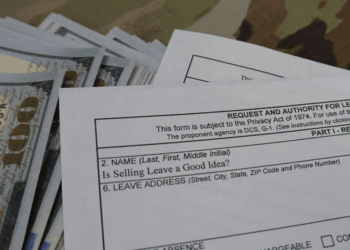An adequate life insurance policy can provide surviving family members some peace of mind — but more specifically, it can also provide financial security to loved ones, should its insured die; it does so by transferring what is called a death benefit to designated beneficiaries. In most cases, this is a tax-exempt sum, and beneficiaries can then use the funds in whatever way they choose.
For many years, however, active-duty military personnel faced barriers in finding and securing life insurance coverage for combat-related deaths.
That’s why the Uniformed Services Benefit Association (USBA), a not-for-profit association, was founded in 1959. USBA founders realized that military families had difficulty finding adequate life insurance coverage for service members. According to Rhonda Butler, USBA vice president and COO, USBA took steps to to do away with an unfortunately all-too-common industry “war clause” in its group policies.
That military-friendly approach has made the organization a success for 65 years.
“USBA processes approximately 1,450 claims per year with New York Life Insurance Company1, our underwriter,” Butler explains, “paying an average of approximately $30 million in claims each year to our beneficiaries.”
USBA does all of this without requiring membership fees or annual dues.
How to report a life insurance claim
“Most of our claims start with a phone call from a family member notifying us of the death of the insured,” Butler said. “During that call, our claims staff will obtain the information needed to start the claims process, such as the date of death, cause of death, and contact information.”
USBA can then determine which documents will be required to process the claim, she adds.
Requirements to receive the death benefit
Next, a claim form is sent to each beneficiary, along with a letter of instructions, Butler said. Once completed, the claim form should be returned, with a certified copy of the death certificate.
“It is important to make sure the claim form is completed in full,” Butler emphasized. “The claim cannot be processed if the beneficiary does not provide their personal information — including Social Security number and date of birth.”
In some cases, additional information is needed, such as confirmation of the number of children, a “Death of an American Citizen Abroad” form, or information regarding a trust or estate.
“Once all required information is received in our office, it is reviewed and sent to New York Life Insurance Company for prompt payment,” Butler said. “The life insurance proceeds are paid to the beneficiary by check or direct deposit within just a few days.” (Current service standard is 5 days for in good order claims.)
Since 2015, claims of $15,000 or less have been able to be processed after just a phone interview with the beneficiary and funeral home, with no paperwork required. Although some qualifications must be met before this option becomes available, such as a cause of death being from natural causes and a beneficiary designation being in effect for at least six months, it is up to the discretion of the insurance company to determine if the claim qualifies.
Due to the success of that program, Butler said, the maximum benefit amount to allow that expedited processing has been increased periodically. At present, benefits of $100,000 or less may qualify for payment of the claim without having to complete any paperwork, a welcome addition to the claims process.
“Approximately 45% of our claims are paid by this method,” Butler explained.
“The death of a loved one is a stressful time,” Butler points out, “and the last thing anyone needs is additional stress while trying to claim the death benefits.”











































